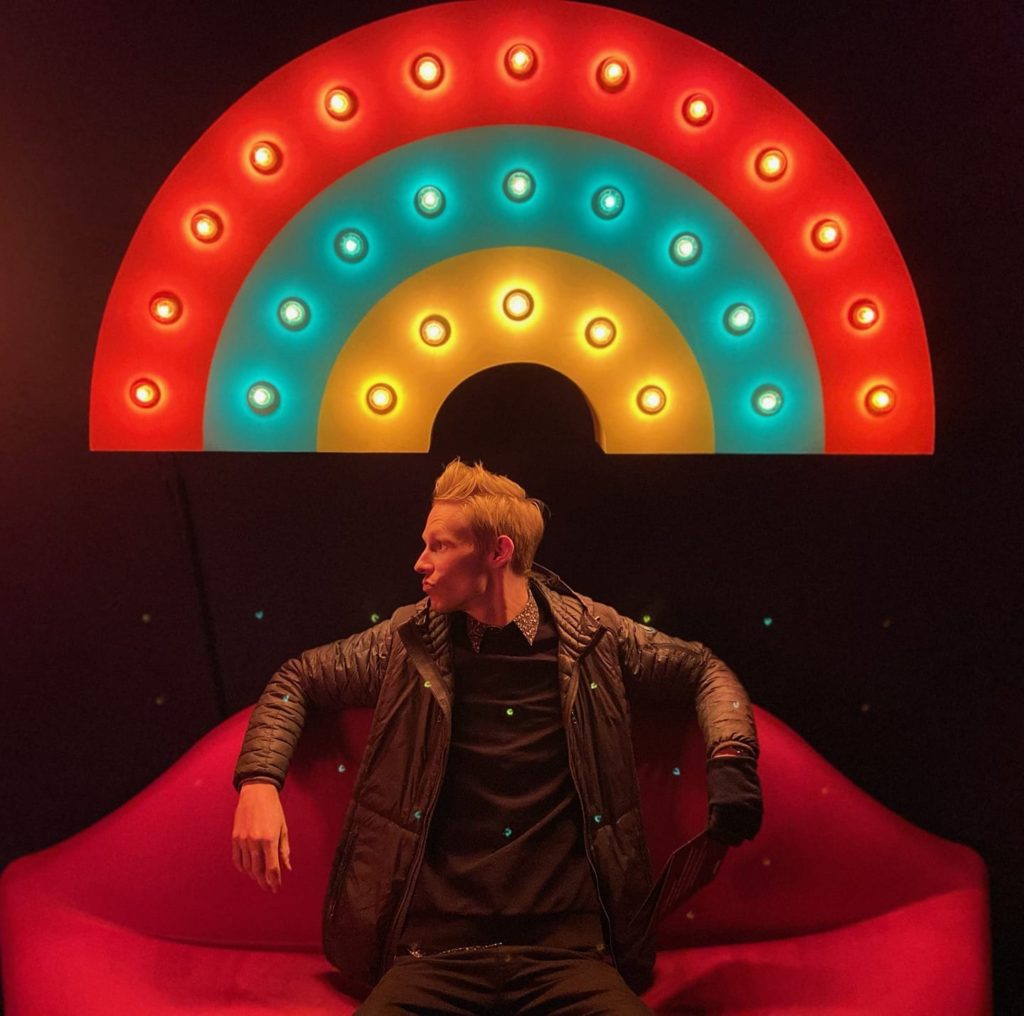Gogo and I stand in the shower, close together, the water is warm on the skin and breaks between our fingers and toes. We fall into the fresh sheets of the feather bed just outside the door, wrapped in blankets, surrounded by pillows, a warm and safe space where our anxieties disappear with the dust on the floor.
A small bar stands at the end of the street. It smells like cigarettes even though cigarettes have been banned for years. It is warm inside no matter the season. People yell for drinks and cheer for their favorite sports teams playing on the TV overhead. Plastic bags of potato chips hang from the walls. There is a dartboard in the back, slightly crooked, like an open mouth. The basketball game above is last second, hold-your-breath, one shot, two-points, three. We throw darts. I let her win. She lets me win. We both go home happy.
We talk about leaving. We talk about taking a trip across the country. The wide-open spaces of the country still a mystery. The open road stretches on and on until finally it comes to an end at the edge of the world where anything is possible.
America is not the mystery it once was. Her secrets have been brought out into the light. Her rivers and hills and prairies now turned to toothpaste and gasoline. But we talk about it anyway. Talk about getting away with no need to look back.
There wouldn’t be, would there? Gogo asks. A reason to look back?
The world is still a big place (or it can be), but it’s the small things that make this true. Drinking in old bars, throwing darts, listening to townies about sports to the cadence of sports-announcers’ voices. It’s walking home as snow begins to fall and listening to the crunch of your boots along on the sidewalk. It’s the warmth of the apartment when you get inside. Having breakfast at 3am at the 24-hour diner after the bars close. It’s falling and then having a reason to get up again.
If we leave, I say, we leave together.
If you run, I tell Gogo, I’m running too.
She smiles and nods and kisses my cheek. But in her head she thinks,That’s what all the boys say, isn’t it? and it’s true that actions speak louder than words. I can say anything I want. I can whisper things in her ear, soft-and-sweet at night between sheets, and it won’t be until she’s getting in the car – the engine running, coughing, asking if I’m coming, asking if I’ll leave everything behind for her and start fresh somewhere new, somewhere we’ve never been – that she’ll know if my words were true or if I was only trying to get in her pants.
So we leave the city behind. We watch the lights change on the street. We listen to music on the radio. There are words and shouts around the windows, brought by the wind because in the city you’re never truly alone. But then – when you leave the city behind and it’s nothing but open road and Iowa grass and Nebraska corn and Texas oil fields, then – then – you might hear the things that can’t be manufactured or captured on your phone.
And here Gogo laughs with her head thrown back, because we don’t know anyone around these parts. We find a lonely hotel on the side of the road. We shower together and the taps run hot on bare skin, steaming between our fingers and toes. We fall into bed, we know someone has slept there before us, wrapping ourselves tight in the sheets. We laugh and forget, for a time at least, that the world outside is still waiting for us to fall. We forget, for a moment, that the words we heard on the wind were real words and at some point we’ll run out of road. There won’t be any more hotel beds or dart boards. We’ll finally know if dreams do come true at the edge of the world.
We leave in the morning. The sleepy sergeant who runs the front desk, still wearing his uniform from the war, takes our room key and hands us the bill. He nods as we pay and falls back to sleep on the counter next to his bottle of whiskey. Gogo takes the bottle and slips it into her shirt, winking at me while the sergeant snores.
We run through the door and back to the parking lot where the car is covered in dust that turned to mud in the morning. We start the engine and keep driving. But with a certain melancholy sadness now because we know the end is coming soon. Soon we’ll come to a skidding halt and the tires will smoke and we’ll say something like, We made it, what do we do now?
And so Gogo grows quiet as we drive, taking long drinks from the bottle, they call it hooch around here, looking through the window to the endless expanse of countryside, listening closely and hopefully for the poetry she thought might be hiding in the brush.
The sun is hot overhead. We’re sweating in the car. If we weren’t, if we were cold, still shivering in the dead of a Minnesota winter, we wouldn’t be able to have thoughts like these. We would scrape ice from the windshield and windows before we drove anywhere. We would have realized the warmth of the apartment, the drinks at the bar down the street, the blankets on the couch, cuddled up watching old movies with happy endings (or endings that make you think there might be happiness in the end) is better than running south where we don’t know anyone and only the ocean can give us the answers we could never find on our own.
In the heat, along the dusty Texas prairie, across the general rumble of the road, surrounded by country whispers and the wind, we might finally understand. This, I know, is what it means to be truly and completely gone.
But the ocean sparkles and shines before us and that might be enough. We’re far away from home, Gogo says, and that might be enough. She smiles and drinks the last of the bottle. She throws the bottle as far as she can into the grass. She jumps into the water. I follow.

ABOUT THE AUTHOR
Adrian Daniel was born in Hackettstown, New Jersey in 1994. He graduated from Hamline University with an English degree in 2016. He has spent the years since as a journalist, editor, content writer, and author, as well as a painter, musician, chef, and photographer.
